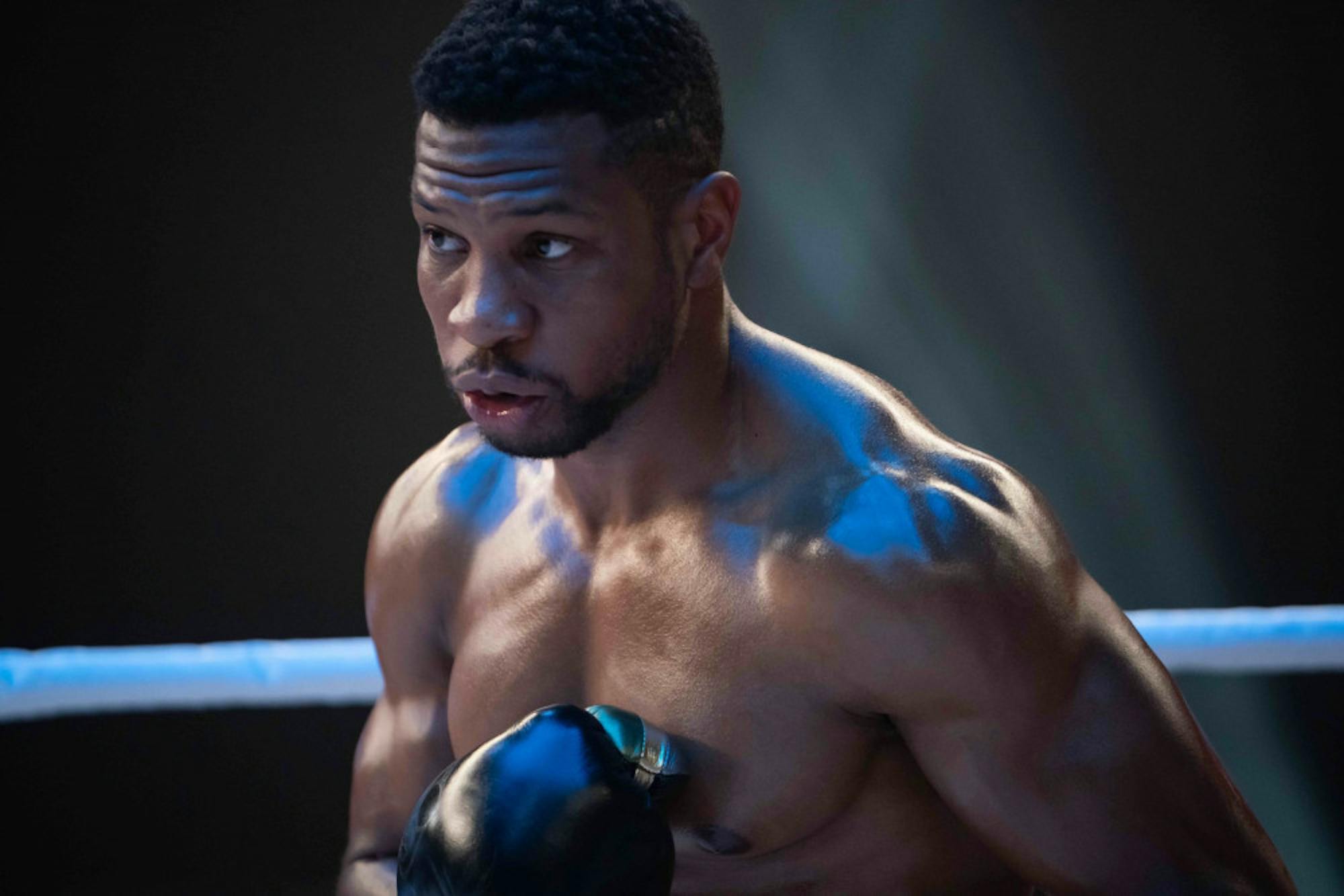It feels unfair to mention “Rocky” (1976) when discussing “Creed III” (2023). As the first film in the boxing franchise without the Italian Stallion in any capacity (minus a producing credit), it’s clear from the get-go that this is the beginning of the post-”Rocky” era for the, until now, aptly named “Rocky” series. It was an inevitable transition, and who better to lead it than Adonis Creed (Michael B. Jordan) himself behind the director’s chair? Yet, for a film that is so clearly trying to move in its own path, it cannot help but continue to dwell in the past. “Creed III” feels like an unmade sequel to the first “Creed” (2015) — what “Creed II” (2018) would have been without Stallone or Russians — and except for an incredible performance from Jonathan Majors as the film’s antagonist, it falls just short of its predecessors.
Adonis Creed has hit his highest of highs. Now three years retired as the former heavyweight champion of the world, he spends his days having tea parties with his daughter Amara (Mila Davis-Kent), supporting his wife Bianca (Tessa Thompson), now well established in her career as a musical artist, and overseeing the next generation of boxing legends at his gym. This peace is suddenly upset by the reemergence of Damian Anderson (Jonathan Majors), Creed’s childhood best friend and, before winding up in jail for a crime that Adonis blames himself for, the rising star in the junior boxing world. Almost 20 years later, he has been released and wants to retake his future no matter what it takes, even if that means fighting the man he once considered his brother.
Jonathan Majors is by no means a new face to Hollywood, especially with his recent breakout roles in “The Last Black Man in San Francisco” (2019), “Lovecraft Country” (2020) and as Marvel’s new big bad, Kang the Conqueror. To just say he’s a good actor is pointless; anyone who’s ever seen him in a movie or show can attest to that. What’s special about his performance in this movie is just how much he absolutely eats any scene he is in. On a dime he can turn from a genuinely terrifying force of nature to a sad, broken shell of unrealized, abandoned talent. His physical presence combined with the intensity of his boxing scenes and the pure emotions in his face and voice make Damian not only the best villain of the “Creed” movies, but maybe even in the entire “Rocky” franchise. He’s just that good.
Michael B. Jordan, in a move reminiscent of the previous shepherd of this franchise, decided to direct this film alongside acting as its star. To get the traditional fears of an actor-turned-director film out of the way, Jordan’s filmmaking clearly has passion and talent behind it. The first two-thirds of the film feature very little boxing, and Jordan’s choice of camera movements and positioning makes the slow build of this portion of the movie toward Damian’s inevitable explosion maybe even more engaging than the marquee fights. Unfortunately, that’s also due to Jordan’s strange and ill-chosen focuses in those fights. He relies on a good amount of slow motion and quick cutting which only serve to lengthen the brawls and take the viewer out of the action. His tendency to try to tell the stories of characters through visuals is also admirable, but the methods he uses only serve to heighten the distance from the viewer and the story.
It’s strange that the weakest moments of the film end up being those that have to do with boxing, almost to the point where it feels like Jordan and his collaborators don’t want to have to deal with the fight scenes anymore. The film’s mandatory training montage is over in a heartbeat and features no memorable moments or music, and as a result the buildup to the final fight feels sudden and unearned (as does the film’s conclusion). Characters bring up topics such as therapy and talking through trauma rather than hitting others in hopes it will go away, but barely follow through in achieving these goals. It’s a shame, since there are roots here of a good character-based drama that could have been an evolution of the personal stories the “Rocky” films relied on to stay in the public consciousness for just under 50 years. Yet without the true grit of the first film’s script or the finesse of the second film’s direction, all this sequel can pull together is a decent drama brought down by sloppy fights and an unfocused vision of what it wants to be.
The legacy of “Creed III” will depend on what succeeds it. It feels like a trial run for both Michael B. Jordan’s directing career and the future of the franchise now firmly under his control, as Jordan is determined to continue into a confirmed “Creed IV” and spinoffs (whatever those may be). Adonis Creed’s story has been told to its apex; whatever follows needs to find a new way to tell the “Creed” franchise’s stories.
Rating: 3/5
Summary: “Creed III” (2023) is a powerhouse showcase for Jonathan Majors’ talent and a mostly promising start for Michael B. Jordan’s directorial career but lacks the gritty punch of the first film or the closure of the second.






